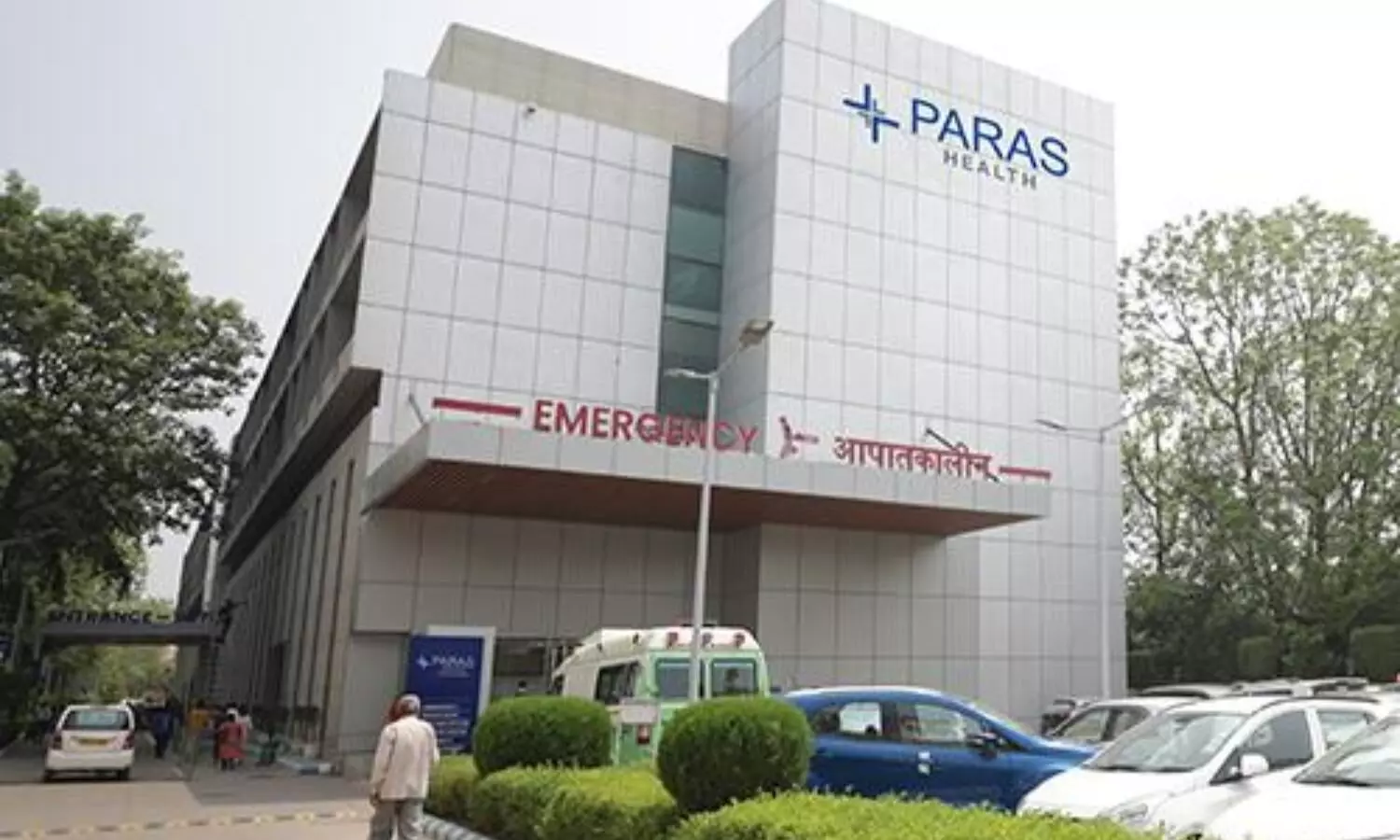- Home
- Medical news & Guidelines
- Anesthesiology
- Cardiology and CTVS
- Critical Care
- Dentistry
- Dermatology
- Diabetes and Endocrinology
- ENT
- Gastroenterology
- Medicine
- Nephrology
- Neurology
- Obstretics-Gynaecology
- Oncology
- Ophthalmology
- Orthopaedics
- Pediatrics-Neonatology
- Psychiatry
- Pulmonology
- Radiology
- Surgery
- Urology
- Laboratory Medicine
- Diet
- Nursing
- Paramedical
- Physiotherapy
- Health news
- AYUSH
- State News
- Andaman and Nicobar Islands
- Andhra Pradesh
- Arunachal Pradesh
- Assam
- Bihar
- Chandigarh
- Chattisgarh
- Dadra and Nagar Haveli
- Daman and Diu
- Delhi
- Goa
- Gujarat
- Haryana
- Himachal Pradesh
- Jammu & Kashmir
- Jharkhand
- Karnataka
- Kerala
- Ladakh
- Lakshadweep
- Madhya Pradesh
- Maharashtra
- Manipur
- Meghalaya
- Mizoram
- Nagaland
- Odisha
- Puducherry
- Punjab
- Rajasthan
- Sikkim
- Tamil Nadu
- Telangana
- Tripura
- Uttar Pradesh
- Uttrakhand
- West Bengal
- Medical Education
- Industry
Doctors at Paras Health Gurugram treat congenital heart disease in 36-year-old male using double stenting procedure

Gurugram: Paras Health, a leading healthcare institution, successfully treated a rare congenital heart defect in a 36-year-old male patient, using a stenting procedure.
The patient was experiencing debilitating symptoms for several months. Initially, he diagnosed with abnormal heart sounds at a local hospital before being referred to Paras Health.
Subsequently, via an eco-cardiography and transesophageal echocardiography at Paras Health – the patient was diagnosed with a rare variant of congenital heart deformity called sinus venosus ASD (Atrial Septal Defect)—a hole in the heart's upper chambers (atria) wall. This condition led to fatigue, exertion, intolerance, reduced work capacity, and breathlessness, ultimately affecting his daily life and work.
Also Read:Paras Healthcare rebrands itself as Paras Health with new logo
This case's uniqueness lies in the location of the hole, positioned unusually high within the wall of the upper chambers. Typically, addressing such complex cases requires invasive open-heart surgery.
However, the team of cardiologists at Paras Health Gurugram, Dr Deepak Thakur, Consultant, Pediatric and Adult Structural Heart Interventional Cardiologist, in collaboration with Dr Amit Bhushan Sharma, Director of Unit 1 Cardiology, and supported by Dr Alok Rajan, Head, Cardiac Anesthesia Department, devised and executed a groundbreaking non-surgical intervention.
Speaking about the condition, Dr Amit Bhushan Sharma, Director & Unit Head, Cardiology stated, “Adult structural heart deformities are a common detected these days. Among 100 cases of congenital deformities treated at Paras Health, 10-15% are found and treated in adults. This is because certain heart defects go undiagnosed for years due to their mild or tolerated symptomatic nature.
When the heart can no longer tolerate these defects, symptoms tend to manifest later in life. In this case as well the patient was suffering from Sinus Venosus ASD which is one such condition that remains mildly symptomatic and involves the upper part of the atrial septum near the superior vena cava—a large vein that carries blood from the body to the heart.
This type of defect can cause abnormal blood flow from the left atrium to the right atrium, leading to dilatation of right side heart and increased lung pressures." Which with advancing age can make this defect incurable and can even make patient a candidate for heart lung transplant for survival.
Commenting on the procedure, Dr Deepak Thakur, Consultant, Pediatric and Adult Structural Heart Interventional Cardiologist, Paras Health, Gurugram said, “This successful intervention signifies a significant leap in our ability to treat complex congenital heart defects without subjecting patients to extensive open-heart procedures. The pioneering stenting technique enabled to closing of the defect and redirecting the vein to the correct chamber of the heart effectively and abolishing the abnormal blood flow making chambers get back to their normal physiology .
Remarkably, this intervention was performed under sedation through the groin on the beating heart, without the need for bypass surgery or prolonged ventilator support. One of the notable outcomes was the patient's rapid recovery, allowing him to return to work the following day without visible scars or pain. Following the intervention, the patient is under regular follow-up care and is expected to resume a normal life, cautioned only to avoid major trauma.”
Dr Amit Bhushan added, “Our hospital aims to take forward the patient-centric and clinically reliable care that we stand for. The success of this case has been a milestone for us, reaffirming our state-of-the-art medical infrastructure/ technology, clinical excellence, and a dedicated team of doctors. Our Cardiac science Department offers complete spectrum of Cardiac services right from Fetal cardiology to gediatric cardiac care”
Patient expressed, “I was unaware of my congenital heart defect for years until it started affecting me severely. Thanks to the team of doctors at Paras Health who took care of me and suggested a best possible treatment for my complex condition. I'm grateful for their care, and I'm thrilled to be back at work within days, feeling healthier."
Congenital heart diseases commonly affect infants and children, impacting around 10 in every 100 children. However, these conditions can also occur in adults, underscoring the importance of timely diagnosis and specialized care. This milestone achievement positions Paras Health, Gurugram, among the select centers globally capable of performing such intricate non-surgical interventions for congenital heart defects.
Kajal joined Medical Dialogue in 2019 for the Latest Health News. She has done her graduation from the University of Delhi. She mainly covers news about the Latest Healthcare. She can be contacted at editorial@medicaldialogues.in.



